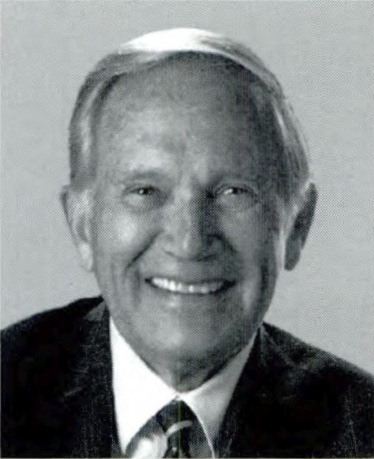By David Cohen
 Don Edwards in every way stands as a giant by dint of his lasting contributions to civil rights and civil liberties and his early opposition to the Vietnam War.
Don Edwards in every way stands as a giant by dint of his lasting contributions to civil rights and civil liberties and his early opposition to the Vietnam War.
Don stood tall and erect as a firm, committed and resolute voice without high decibels. Don was listened to.
Don Edwards understood what a majority of the Supreme Court does not: “If you can’t vote you’re not a real citizen.”
We have already seen the damage done by the Supreme Court giving states with a history of racial discrimination the power to prevent voters from exercising their rights based on race, class, age and previous condition of servitude or country of origin.
Don Edwards was at the center of every major civil rights starting with the 1964 Civil Rights Act. His legislative acumen, and his ability to work with Republicans, strengthened the 1965 Voting Rights Act (VRA) when the Reagan Justice Department threatened the viability of that statute, considered an ornament of American democracy.
Starting in 1971, with the Equal Rights Amendment, Don Edwards managed every civil rights bill considered by the Congress. His ability to work with people who did not agree with him made him invaluable in enacting the Americans with Disability Act, another national treasure.
Don pushed on the legislative and congressional boundaries by testing and stretching them. While I worked with him on many of the civil and voting rights bills, my closest work with him was when Don stretched the boundaries.
Don led an early effort to challenge the notorious House Un-American Activities Committee (HUAC). Until that time the challenges to HUAC were perfunctory. I suggested to Don to make the key vote the procedural recommittal motion then used by many Republicans. We schemed to keep Don’s move under wraps so House Republicans couldn’t preempt the motion.
We communicated informally with possible votes. To everyone’s amazement, we got over 60 votes for recommittal which was considered a NO vote on HUAC. That was 1965. Ten years later, after the 1974 liberal landslide, Don and others buried HUAC. The basis was laid with Don’s pioneering work.
In those days challenging a President on foreign policy was a fast way of getting a ticket to St. Elbe. That didn’t stop Don. He opposed the Vietnam War on principle. You could work with him on finding different ways of raising the issue through petitioning for hearings, using the House floor to raise concerns and ask questions. The powers that be in the House ignored us but as war deaths increased, and newer members served, the basis was laid for what became the set of House reforms on seniority, sub-committees and Members bill of rights. That influence on the course of events has not received sufficient attention by historians and political scientists.
Don served with a remarkable group of other boundary crossers, who like him, were effective legislators: Don Fraser, Bob Kastenmeier, George Miller, Abner Mikva, Norm Mineta, Bob Matsui, Phil Burton, John Burton, Sala Burton, Ben Rosenthal and Nancy Pelosi.
No tribute to Don Edwards can be complete without recognizing the remarkable contributions of his wife Edie Wilkie of blessed memory. Edie with her grasp of politics, legislative procedure, the substance of national security policy including those weapons systems that Donald Regan said women cannot understand, stood as a force who influenced those in the Congress and those outside of it. She provided insight and judgment with her laugh, supportive remark, riposte or witty comment that stripped bare the gloss when that was needed.
Together Don and Edie could not be stopped. But best of all, you always wanted to be in their presence. Their presence will always be with us.
